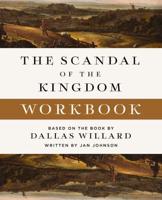Publisher's Synopsis
A new command I give you: Love one another. As I have loved you, so you must love one another.JESUS CHRIST. The life of Jesus Christ, the historical person whose name is attached to the many different denominations of Christianity which exist today. In fact, so much has been written that one might wonder whether anything truly new could be written about this one life. As the reader will see, new information about the life of Jesus Christ can be ascertained by combining biblical and secular historical accounts and traditions about the time in which he lived. This chapter is not intended to be a complete history of the life of Jesus Christ. It will cover those aspects of his life and times which have not been generally known. The prior chapter dealing with the Parthian Empire discussed historical events which shaped the world into which Jesus Christ was born. When some surprising information about his life is added to the history contained in the previous chapter, it can be seen that Jesus Christ actually played a role in the great power politics which occurred between the empires of Parthia and Rome. If he had chosen to do so, he could have had a much larger role in the political affairs of that era, and the Bible hints at such a possibility. This chapter will begin by offering firm evidence that Jesus Christ was a real, historical person. Josephus, a Jewish historian of the first century A.D., regarded the life of Jesus Christ as an established fact. In Antiquities of the Jews, Josephus wrote: "there was about this time [Josephus here refers to matters concerning Pontius Pilate, Roman procurator of Judea], Jesus, a wise man, if it be lawful to call him a man, for he was a doer of wonderful works - a teacher of such men as receive the truth with pleasure. He drew over to him both many of the Jews, and many of the Gentiles. He was Christ and when Pilate, at the suggestion of the principle men among us, had condemned him to the cross...he appeared to them alive again the third day, as the divine prophets had foretold these and ten thousand other wonderful things concerning him; and the tribe of Christians, so named from him, are not extinct at this day." In this account, written shortly after Christ died, Josephus not only gave us a powerful witness that Jesus Christ truly lived, but also provided an independent corroboration of many of the biblically discussed events of his life. Josephus refers to him as "a wise man," and wonders whether he was more than a mere man because of the "wonderful works" he did. Here a non-Christian, Jewish historian of the apostolic era writes of the miracles of Jesus as actual facts. Josephus agrees with the testamental writings that Jesus was indeed sentenced to be crucified by Pontius Pilate at the behest of the Jewish Sanhedrin ("the principle men among us"). Josephus acknowledges that Jesus Christ fulfilled the manyprophecies of the Hebrew prophets about the Messiah, and even refers to his resurrection as a historical fact!1 Josephus' reference to Jesus as "the Christ" acknowledges that Jesus was the Messiah ("the anointed"). Since a non-Christian source so close to the actual time of Christ has confirmed these facts of his life, the musings of modern skeptics questioning Christ's existence are without merit. Josephus could speak with eye-witnesses of Jesus' life; modern skeptics are almost two millennia removed the events, and their writings are merely speculative.










